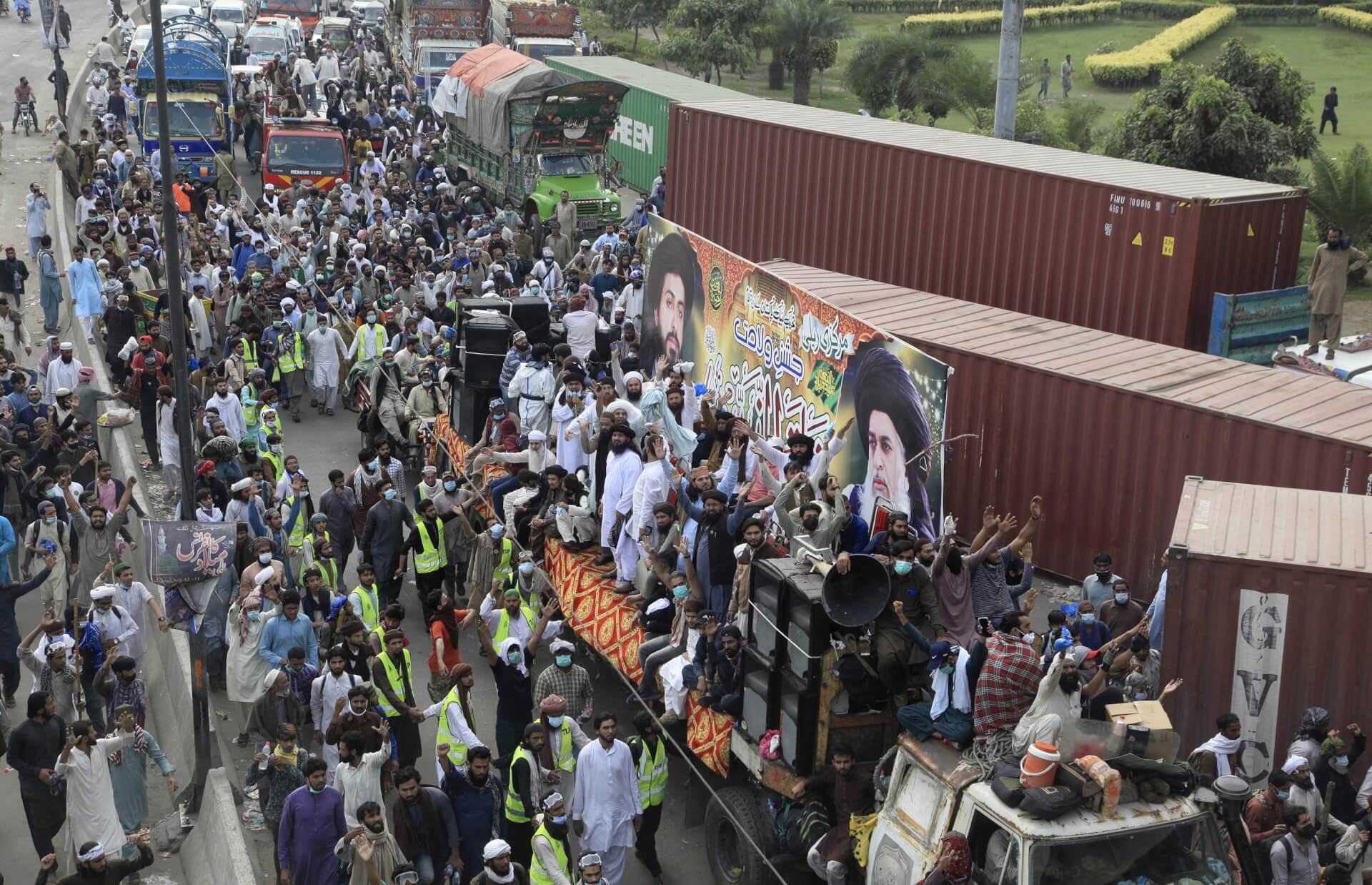The Pakistani government has reached a compromise with banned far-right extremist group Tehreek-e-Labbaik Pakistan (TLP), bringing an end to the group’s ten-day-long protest.
Pakistani Foreign Minister Shah Mahmood Qureshi entered into an agreement with religious leader Mufti Muneebur Rehman following a meeting on Sunday. The government sent a 12-member negotiation team to conclude the discussions and bring an end to the protests. According to Al Jazeera, the meeting lasted over 12 hours.
However, no details of the agreement were disclosed by either side. Rehman said, “Details and positive results of the agreement will come before the nation in a week or so.” He urged the media to report the details of the agreement “positively.” Moreover, he reassured that the TLP’s leader, Saad Rizvi, also supported the terms of the compromise.
Qureshi, meanwhile, expressed his gratitude to the country’s religious leaders, adding, “In the light of the prime minister’s orders and keeping in view of the nation’s interest, we realise that powers who want to harm Pakistan could have benefited (from the protests).”
The TLP launched the protests on October 22, participating participated in a march from Lahore to Islamabad, with around 8,000 activists blocking roads and firing projectiles. Their key demand was the release of the group’s leader, Saad Rizvi. Rizvi was pre-emptively detained by the Pakistani authorities in April to “maintain law and order” after he presented the Pakistan government with an ultimatum to expel the French ambassador to the country.
In order to disperse the protesters, security forces used tear gas shells and set up roadblocks and trenches; 500 paramilitary troops were also deployed. As a result of the clashes between the activists and the security forces, at least eight policemen died. According to TLP Central Information Secretary Pir Ejaz Ashrafi, 11 members of the group were also killed in the clashes.
The Pakistani government has already released 350 TLP activists. Interior Minister Sheikh Rasheed Ahmed also said that the government was ready to drop charges against leaders and activists of the group, along with reconsidering the names that feature on the list of citizens being monitored under the anti-terrorism laws.
The protests caused economic damage to the already cash-strapped country, as the blockades effectively isolated Islamabad and Rawalpindi. Furthermore, the protests disrupted internet and train services in Gujranwala, which is 220 kilometres from Islamabad.
Over the years, the TLP’s protests have often negatively impacted the country. For instance, following Rizvi’s arrest in October 2020, the group organised nationwide protests that not only brought several cities to a standstill but also endangered authorities’ efforts to contain the COVID-19 pandemic. According to Hasaan Khawar, the special assistant to the chief minister of information, since 2017, TLP-led protests have resulted in economic losses of over Rs. 35 billion ($467 million). In fact, the current protest, he said, has already caused economic damages worth Rs. 4 billion ($53.4 million).
Pakistan Government Strikes Deal With Banned Far-Right Extremist Group TLP
The TLP launched the protests on October 22, participating participated in a march from Lahore to Islamabad, with around 8,000 activists blocking roads and firing projectiles.
November 1, 2021

SOURCE: ASSOCIATED PRESS
